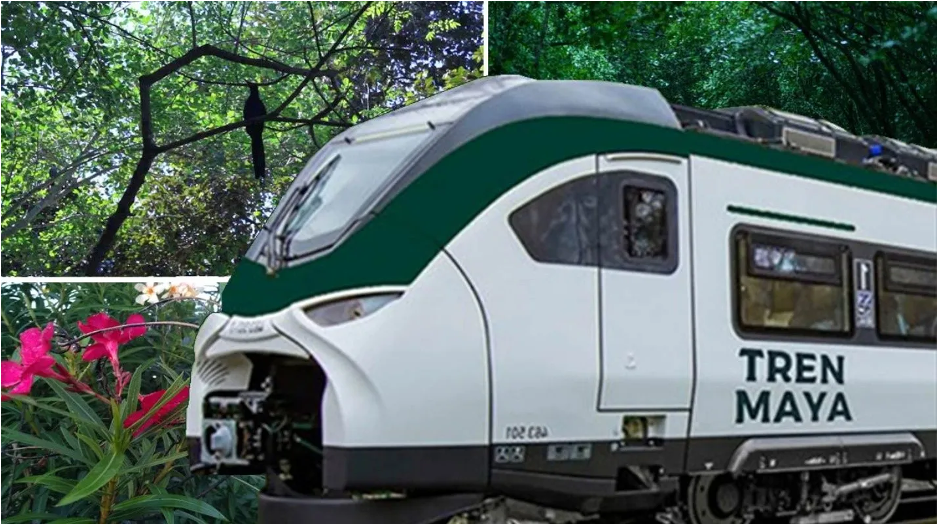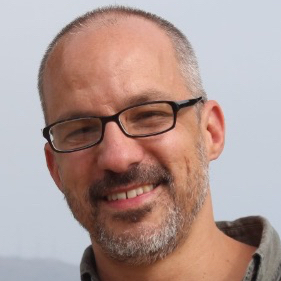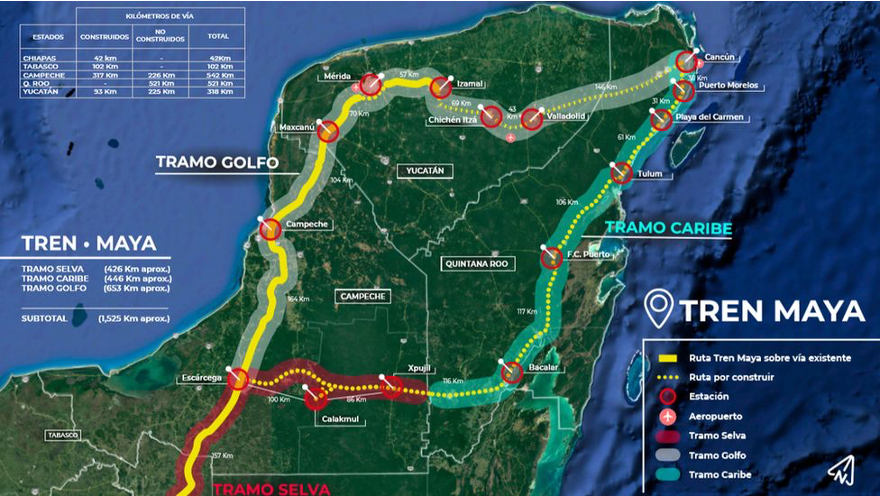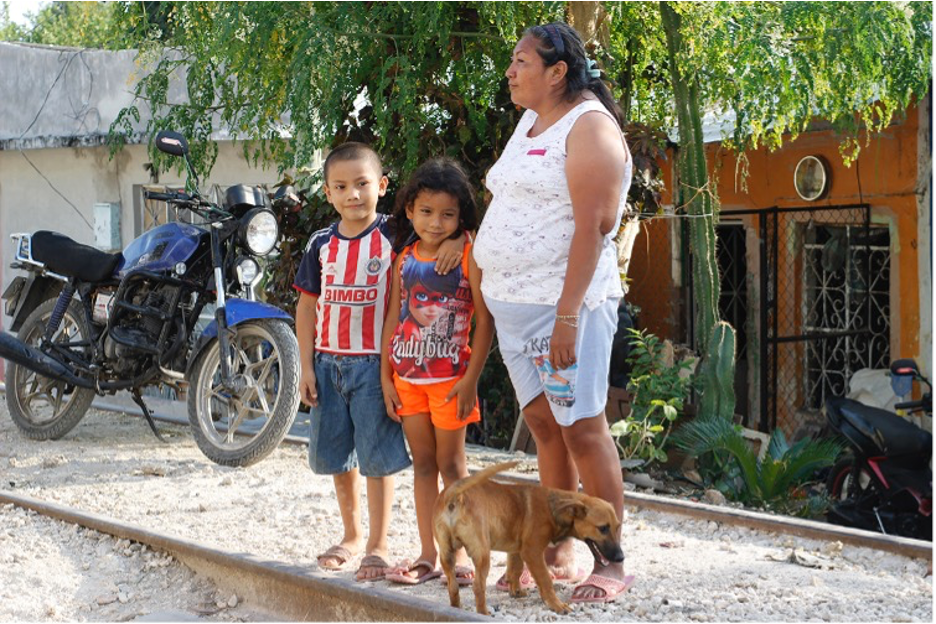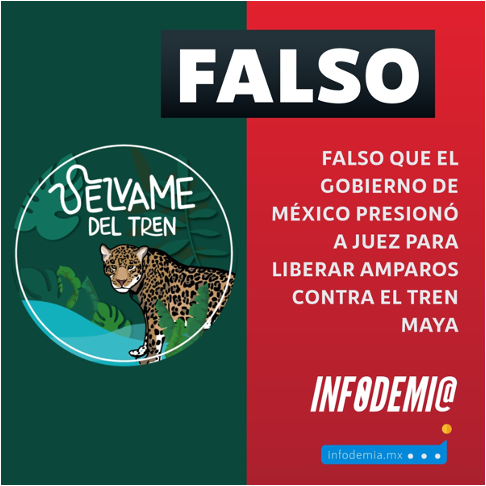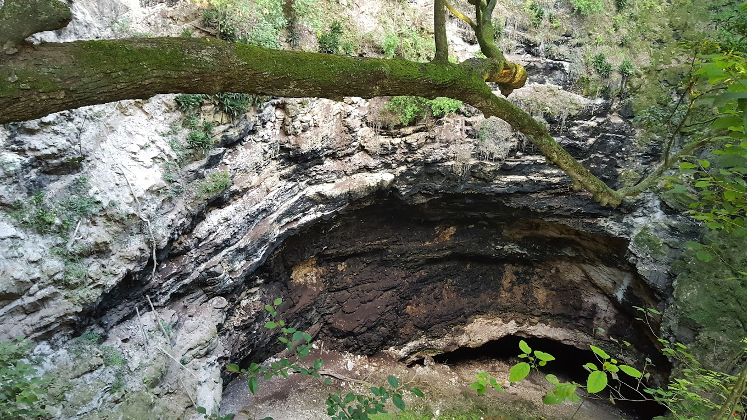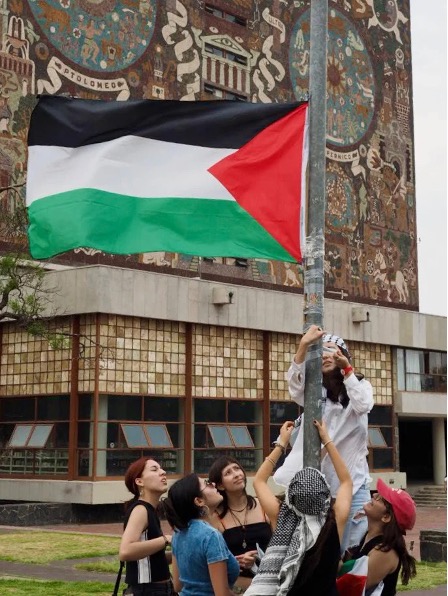|
|
|
|
The weekly newsletter of the Mexico Solidarity Project |
|
Every issue archived online at mexicosolidarityproject.org |
|
|
|
May 15, 2024/ Meizhu Lui, for the editorial team |
|
|
|
Tren Maya: What Kind of Transformation? |
|
|
Transformations never please everyone. When the good fairy turned the poor, downtrodden Cinderella into a princess, her sisters were angry that she got this huge upgrade in status. And there were probably those in the village who said, “Cinderella was prettier when she was barefoot and didn’t have her hair done!”
So it is with the huge Tren Maya project now transforming the Yucatán peninsula, the poorest and most neglected area of Mexico. Some are outraged. Even though the military was the only department capable of taking on such a massive civilian project, some say, “This is terrible: AMLO is militarizing Mexico!” (In the US, the US Army Corps of Engineers has built irrigation, navigation, recreational projects and many more civilian projects without any charge of “militarization.”)
And some are nostalgic. Many who visited Tulúm or Cancún before foreign resort developers exploited the coastal areas, oppose the train, charging that the area would be better off without easy ways to reach these ecologically and archeologically sensitive areas.
But better for whom? What are the views of the people who live along the route of the train? For several weeks at the end of April, Étienne von Bertrab, who has been researching the impact of the train for four years, invited three members of the MSP Bulletin committee to travel with him and find out for themselves.
We’ll be writing up interviews with the people we met along the route of the train, from government officials to indigenous community members to people on the streets. This week, we reprint from our May 2023 issue Étienne’s overview of the project to get you ready for an exciting ride! |
|
For a deeper dive into current news and analysis in English, check out our media website. And definitely see the new English podcast ¡Soberanía! (Sovereignty) with José Luis Granados Ceja and Kurt Hackbarth. They entertain, while dismantling the lies and distortions about Mexico fed to us by the mainstream media. |
|
Don’t miss an issue! Sign up for a free Mexico Solidarity Bulletin subscription. |
|
|
The Tren Maya Project: Are All Aboard? |
|
Étienne von Beltrab, born and raised in Mexico, is a professor of political ecology at the University of London. For the last four years, he has led a team of master’s degree students to conduct an intensive assessment of the Tren Maya (Mayan Train) project in Mexico’s Yuccatán Peninsula. Through interactions with government planners from different departments, engineers, architects, workers, urban and rural residents, he has become the foremost independent expert on the impact of the train. |
|
|
Why did AMLO make the Tren Maya project a major piece of his 2019-2025 National Development Plan?
AMLO’s roots are in Tabasco, and he understands well the needs of the communities in the southern region. The Tren Maya will connect the southern states of Chiapas, Tabasco, Campeche, Yucatán and Quintana Roo. Historically, the region has given much to the national economy, but until this administration, it received little from the center. As in colonial times, while its vast natural resources were extracted, the majority of the population was abandoned by the State. |
|
|
Route of the Tren Maya (2023) |
|
This is a huge area, as big as the United Kingdom. For too long transport services have been a monopoly of the private A.D.O. bus company, whose prices are prohibitive for ordinary people and which does not serve small rural communities since it’s not profitable. Over the last few decades, tourism has become the most important industry, but its benefits are captured by just a few in Cancún and the “Mexican Riviera” along the western coast. Residents in many communities, particularly young people, must leave home to go to Cancún, Playa del Carmen, Tulúm or the US for jobs. There is a desperate need to end the stagnation of the region’s economy.
But the expanding tourism and disrupting traditional ways of like is exactly what indigenous peoples have opposed, right? The Zapatistas have vehemently protested the Tren Maya.
The states with the highest percentages of indigenous people are Oaxaca, Yucatán, and Chiapas. Of the five southern states, four have voted in Morena governors, which in a way signals support for AMLO’s agenda. An opposition slogan is “Tren Maya is not Maya.” I have asked women selling tacos, taxi drivers, people I meet on the street, and even Mayan peasants about that saying. They say, “Why is it not Maya? It is for all of México!” What are their own questions? “Will I be able to take my produce on the train? What will the tickets cost?”
So is the train being imposed on the people? The indigenous consultation in late 2019 was criticized for not fully meeting its promises, and yes, there were problems. But people are being consulted in many ways, including ejido assemblies. In the past, no one consulted the public, let alone indigenous peoples, about anything. Large-scale projects were always imposed, often with force and the repression of dissent. |
|
In San Francisco de Campeche, the organization Colectivo Tres Barrios opposed the relocation of their homes and brought successful appeals. A decision to relocate the station means the train will no longer enter the heart of the city, and hundreds of residents will continue to live in their traditional neighborhoods. |
|
|
Photo: Arturo Contreras (Pie de Página) |
|
We found no massive popular opposition to the train.
More opposition comes from environmental groups who say that Tren Maya will damage this areas's fragile ecosystem. True?
With 1500 kilometers of tracks, of course there are impacts: vegetation is being cleared and fauna pathways are being crossed. Let’s remember first that the unregulated growth of tourism over the last few decades from Cancún to Tulúm destroyed a lot, so environmentalists have some real worries. |
|
|
Image: Infodemia Mx |
|
However, they also tell half-truths and sometimes outright lies. One accusation was that segment 5 between Playa del Carmen and Tulúm did not consider possible damage to an underground river system. But I have gone to the site with geologists and have seen the amazing engineering used to minimize impact: elevated viaducts are being built to protect cenotes, underground rivers and archeological vestiges. It will be far less damaging than the current four-lane highway, where cars and trucks spew gas and there is no way for animals to cross. |
|
The most vocal opposition group, the “Selvame del Tren” campaign, was invited to visit the site, but they rejected the offer, refusing to learn the real facts first hand. While they have captured international attention, they have no popular base.
So the project has changed from the original plan?
Due to concerns voiced by the people living there, the routes of all seven train lines have been changed from the original proposal. For example, where archeological findings face risks, the route has been changed. |
|
In another example, there was an outcry about the train disturbing the Volcán de los Murciélagos, the site of a cave that is home to 21 million bats. Currently, there is a heavily traveled road that passes directly over the cave. |
|
|
Volcán de los Murciélagos: Photo: Brenda Ordaz |
|
The Tren Maya’s route was moved three kilometers away, so it will not only avoid the cave but will also reduce the traffic on the road overhead.
Yet another controversy arose when AMLO put the construction and operation of the Tren Maya under the military. Why not the Department of Transport?
We’re just coming out of a neoliberal period. The military in charge will make it more difficult to privatize the train in the future, in case a new administration with a different ideology comes to power. Criminal organizations are active in the region, and I witnessed many people feeling safer in the presence of the National Guard and the military. Also, there is an intention to keep the powerful military busy! Moreover, revenues from the train’s operation will help fund military pensions. taking a huge burden from the national budget. But not everyone is happy with this move, and Mexicans will need to keep the government and the military in check.
What is the importance of Tren Maya as a public, not private, project?
There is a phrase used by critics that: “Tren Maya no es solo un tren,” “Tren Maya is not just a train,” implying that it will cause social and ecological dislocation. However, it can mean the opposite. If the train were a private contract, there would be no thought as to other impacts. But this project is connected to other governmental projects and programs that are making a difference in people’s lives. |
|
For example, the Sembrando Vida program involves almost half a million farmers. Peasants are paid to implement agroecological practices to grow crops and plant trees, making it both a poverty reduction and a reforestation program. Near Tulúm, the new Jaguar Park is an enlarged protected area designed to stop excessive urban growth, restore degraded areas, and conserve flora and fauna — like the endangered jaguar! |
|
|
Endangered Jaguar: Photo: Christina Silvestri |
|
Under public control, the project is about the revitalization of the entire region while preserving the natural environment. Indeed, “Tren Maya no es solo un tren!” |
|
|
|
|
UNAM Students’ Gaza Solidarity Encampment |
|
|
José Luis Granados Ceja, a Mexican freelance journalist, is currently studying human rights and popular democracy at the National Autonomous University of Mexico City (UNAM). His writings on democratic struggles in Latin America appear regularly online at his Antimperialistia site. The article below appeared originally in Truthout and has been edited for brevity and clarity. |
|
|
At UNAM’s Rectory Tower, students from the Interuniversity and Popular Assembly in Solidarity with Palestine set up their encampment to protest the ongoing genocide in Gaza. |
|
Like the many US student encampments at dozens of university campuses, Mexican students aim to visibly send a message to the university leadership and to exert pressure for their demands to be met.
President Andrés Manuel López Obrador, elected in 2018 and Mexico’s first leftist president in decades, has condemned Israel’s violence, called for an immediate ceasefire, and joined Chile in referring the war in Palestine to the International Criminal Court, but, unlike Colombia, has stopped short of breaking diplomatic relations with Israel. |
|
|
University Students in Mexico Launch Gaza Solidarity Encampment, Call for BDS |
|
Student organizers see López Obrador’s response as “tepid” given the level of brutality Israel has employed. The students are calling on the Mexican government to break diplomatic relations with Israel and for UNAM to break all academic ties with Israeli institutions.
The Boycott, Divestment, Sanctions (BDS) campaign affiliate in Mexico set up a tent near the student encampment. BDS activist Paulina Castro said that they are specifically calling for a boycott of the tech company HP and the Mexican-based CEMEX, a cement company deeply involved in the oppression of Palestinians through its work building Israel’s “separation barrier” and checkpoints that limit the mobility of Palestinians.
The students’ demand to break diplomatic relations with Israel has major reverberations due to Israel’s insidious role in Mexico’s domestic politics. In March 2011, Mexico reached an agreement to become the first client of the notorious Israeli-made spying software Pegasus and Mexico eventually became the most prolific user in the world. Purportedly created to fight organized crime, governments use the software, which infiltrates phones without users’ knowledge, to spy on civilians; in the case of Mexico, they used it to spy on human rights defenders and activists.
Although López Obrador suspended its use, it is believed the Mexican Armed Forces will continue to use the software. Breaking diplomatic relations would spell an end to the partnerships that allow this software to be used in Mexico.
Israel also played a role in obstructing justice for the 43 forcibly disappeared students from the teacher training college in Ayotzinapa in 2014. Israel is currently sheltering Tomás Zerón, then head of the Federal Prosecutor’s Criminal Investigation Agency and believed to have led the state cover-up of the students’ forced disappearance. A warrant for his arrest has been issued, and Mexico has sought Zerón’s extradition from Israel. Israel has refused, in part because of its displeasure with the López Obrador government’s position on Palestine — Mexico fully recognized the State of Palestine in 2023.
The camp at the UNAM has itself become a place of convergence for transnational, cross-border solidarity. A visitor from Canada noted, “Seeing the same kind of language being used — anti-imperialism and anti-occupation — goes to show that this is a shared struggle. We’re not only targeting the United States as the bastion of white supremacy and global imperialism, but also targeting global capital as a whole. We’re not ending until the collective struggle ends with collective liberation.” |
|
|
|
|
Recent news reports and commentaries, from progressive and mainstream media, |
|
José Luis Granados Ceja, University Students in Mexico Launch Gaza Solidarity Encampment, Call for BDS Truthout. President AMLO has condemned Israel’s violence, called for an immediate ceasefire, and joined Chile in referring the situation in Palestine to the International Criminal Court, but has stopped short of breaking diplomatic relations with Israel as Colombia has done. An organizer describes AMLO’s response as “tepid” and casts the Mexican government’s response as insufficient given the level of brutality Israel has employed.
Sonia Sato, Maternidad y trabajo: Muchas pausas laborales, pocas garantías de retorno El Economista. Ser mamá profesionista es una carrera de resistencia, llevando a cuestas agotamiento, estrés, y la carga cultural de ser cuidadora, lo que hace cuestionarse si también vale la pena luchar en el ámbito laboral si no se tiene una red de apoyo.
Kurt Hackbarth, Ecuador Raided Mexico’s Embassy. Biden Has to Pick a Side Jacobin. From a geopolitical standpoint, US and Canadian attempts to downplay the Ecuadorian embassy invasion are understandable: if they were to condemn it in too clear terms, that would lead to the obvious question: Why there and not in the case of the Israeli bombing of the Damascus consulate, which killed seven?
Kiko Llaneras, ¿Qué dicen las encuestas sobre las elecciones en México? Sheinbaum tiene 86% de probabilidades de ganar El País. Al pasar las semanas sin datos ni noticias desfavorables para la candidata, aumentaron la confianza en su victoria.
Katu Arkonada, Assault on Mexican Embassy in Ecuador was Designed in Washington Resumen Latinoamericano. Lawfare, or the judicialization of politics, is driving major geopolitical changes in the region. The objective is to destroy the main leaders and currents of the Latin American left, leaving the way clear for the rise of the new Latin American right wing.
Maritza Cuevas, ¿Te acuerdas de la cooperativa Pascual? El Sol de Cuernavaca. A la fecha, los trabajadores continúan con la Cooperativa Pascual, y cada año se reúnen para celebrar aquella lucha social de la que salieron victoriosos y marcaron la historia.
Asawin Suebsaeng, Trump Is Planning to Send Kill Teams to Mexico to Take Out Cartel Leaders Rolling Stone. Donald Trump has allegedly told allies about his plans to covertly send Special Forces to Mexico to assassinate drug kingpins.
Julio Gutiérrez y Dora Villanueva, México, con potencial para ser la décima economía del mundo: BBVA La Jornada. Osuna Osuna indicó que se debe mejorar la competitividad salarial para impulsar el consumo interno, que en los últimos años ha sido el principal motor de crecimiento económico, así como disminuir la desigualdad, por medio de incrementar todavía más el salario mínimo, como lo ha hecho la actual administración.
US firm Newmont accused of reprisals against Mexican miners bnamericas. The international mining front (FIM), a transnational association of mineworkers unions, accused US company Newmont of firing more than 100 union members from its operations in Mexico, including some in Peru and Argentina, for demanding their due profit-sharing payments.
Blanca Juárez, Lucha contra el trabajo infantil: El papel clave de los sindicatos en México El Economista. Por primera vez en México, un sindicato ha incluido cláusulas en su contrato colectivo para erradicar el trabajo infantil. |
|
|
|
|
The Mexico Solidarity Project brings together activists from various socialist and left organizations and individuals committed to worker and global justice. We see the 2018 election of Andrés Manuel López Obrador as president of Mexico as a watershed moment. AMLO and his progressive Morena party aim to end generations of corruption, impoverishment, and subservience to US interests. Our Project supports not just Morena, but all Mexicans struggling for basic rights, and opposes US efforts to undermine organizing and Mexico’s national sovereignty.
Editorial committee: Meizhu Lui, Bruce Hobson, Agatha Hinman, Victoria Hamlin, Courtney Childs, Susan Weiss. To give feedback or get involved yourself, please email us! |
|
Subscribe! Get the Mexico Solidarity Bulletin in your email box every week. |
|
Web page and application support for the Mexico Solidarity Project from NOVA Web Development, a democratically run, worker-owned and operated cooperative focused on developing free software tools for progressive organizations. |

